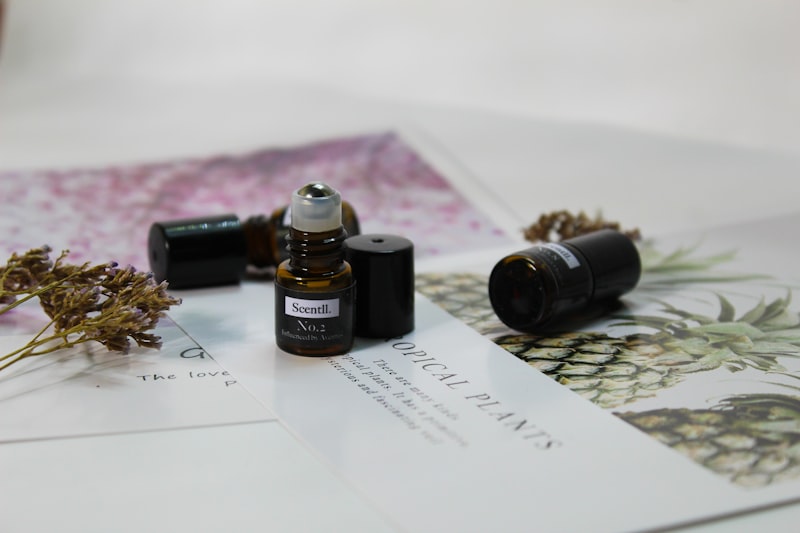How Do Women Cope with Postpartum Depression?
First off, acknowledging that postpartum depression is a valid and serious issue is a significant step. Women often start by seeking professional help. Talking to a healthcare provider can make a huge difference. They can offer counseling, medications, or a combination of both. It’s like having a GPS when you’re lost; it guides you through the maze of emotions and challenges.
Support networks are another lifeline. Friends and family can provide practical help, from watching the baby to lending an ear. Sometimes, just knowing you’re not alone in this journey can be incredibly comforting. It’s like having a crew in a stormy sea, helping you stay afloat when the waves seem too high.

Joining support groups can be another powerful tool. These groups offer a space where women can share their experiences and learn from others who are walking a similar path. It’s like finding a tribe that understands exactly what you’re going through.
Ultimately, coping with postpartum depression is about taking one step at a time and seeking out resources that resonate with each individual’s needs. It’s a journey of healing and reclaiming a sense of self amidst the whirlwind of new motherhood.
Navigating the Storm: How Women Can Overcome Postpartum Depression
First off, it’s essential to understand that postpartum depression isn’t a sign of weakness. It’s a real condition that many women face after giving birth. Think of it like a storm cloud that appears out of nowhere, even when the skies were clear before. So, what can you do to weather this storm?
Start by reaching out for support. Talk to your partner, friends, or family about what you’re going through. Just like you wouldn’t navigate a stormy sea without a crew, you shouldn’t face postpartum depression alone. Support from loved ones can provide a safe harbor, offering emotional reassurance and practical help.
Another crucial step is seeking professional help. Therapists and counselors specialize in guiding people through emotional turbulence. Imagine them as skilled navigators who can help you chart a course through the storm. They can provide coping strategies and, if needed, medication to balance your emotional sails.
Taking care of yourself is equally important. This means carving out time for rest and relaxation, even when it feels like you’re juggling a million things. Think of self-care as your lifeboat—small but crucial, helping you stay afloat amid the waves. Simple actions like getting enough sleep, eating nutritious meals, and engaging in gentle exercise can make a world of difference.
Lastly, don’t underestimate the power of connecting with other new mothers who have faced similar challenges. Sharing experiences and tips with those who truly understand can offer both comfort and practical advice, helping you feel less isolated in your journey.
Breaking the Silence: Real Stories of Women Conquering Postpartum Depression
Real stories of women conquering postpartum depression show that there’s light at the end of the tunnel. Take Emma’s story, for example. She felt like she was sinking into a bottomless pit after her baby was born. It was her friends’ support and therapy that helped her break free from the chains of depression. Emma’s journey is a powerful reminder that asking for help is a sign of strength, not weakness.
Then there’s Mia, who turned her struggle into a source of empowerment. She used her experience to start a blog, sharing her raw, honest journey with others. Her story resonated with countless women, offering them a lifeline of hope and understanding. Mia’s path shows that even in the darkest moments, there’s a chance to inspire and support others.
And let’s not forget about Sophia. She found solace in joining a support group where she could connect with other mothers going through the same thing. The group became her safe space, a place where she could share her fears and triumphs without judgment. Sophia’s experience highlights how community and connection can be powerful tools in overcoming postpartum depression.
These stories aren’t just tales of survival; they’re beacons of hope. They reveal that postpartum depression doesn’t have to be a silent struggle. With the right support and resources, it’s possible to navigate through and come out stronger on the other side.
From Darkness to Light: Effective Strategies for Managing Postpartum Depression
Next, let’s talk about support systems. Think of friends and family as your safety net—each person is like a sturdy rope pulling you back up when you’re feeling down. Share your struggles openly with them; it’s like letting the sunlight in to chase away the gloom. Connecting with other new moms who are in the same boat can also be incredibly comforting. Online forums and local support groups are great places to exchange experiences and advice.
Now, don’t underestimate the power of self-care. Imagine self-care as a lighthouse guiding you safely to shore. Simple practices like taking a walk, practicing mindfulness, or enjoying a hobby can work wonders. These activities are not just distractions; they’re vital components in reclaiming a sense of normalcy and joy.
Incorporating exercise into your routine can also be a game-changer. Think of it as your personal sunrise, gradually brightening the day. Even a short daily walk can help lift your mood and boost your energy levels.
Lastly, consider setting small, achievable goals. They act as stepping stones, gradually guiding you from a place of overwhelm to a more balanced state. Each tiny victory builds momentum, helping you move from the shadows into a brighter, more hopeful space.
The Hidden Battle: How Women Are Finding Hope in Postpartum Depression
Modern approaches to tackling postpartum depression are giving women new tools and support systems. Therapists specializing in perinatal mental health are like skilled navigators, guiding women through the fog. Support groups offer a lifeline, providing a space where women can share their struggles and triumphs, knowing they are not alone. Medication and therapy can act as anchors, stabilizing the ship and making the journey more manageable.
Technology, too, is playing a pivotal role. Mobile apps and online resources offer instant access to mental health support, making help just a tap away. These digital tools are like having a counselor right in your pocket, ready to assist whenever needed.
Furthermore, many women are turning to mindfulness and self-care practices, such as meditation and yoga, as part of their recovery toolkit. These practices help create small islands of calm in the midst of the storm, fostering resilience and hope.
So, while postpartum depression may feel like a hidden battle, women are increasingly finding powerful ways to reclaim their lives and find hope. This battle isn’t fought in isolation; it’s a collective journey towards recovery and renewal.
Empowering Moms: Top Tips for Coping with Postpartum Depression

Next, focus on self-care. It’s easy to put your needs on the back burner when you’re caring for a newborn, but your well-being is crucial. Think of self-care as refueling your engine; without it, you’re running on empty. Small actions, like taking a walk or enjoying a hobby, can provide a refreshing break and lift your spirits.
Also, consider establishing a routine. Having a daily structure can bring a sense of normalcy amidst the chaos. Imagine a lighthouse guiding you through stormy seas—routines act as your beacon, offering stability and predictability.
Lastly, don’t hesitate to seek professional help if needed. Therapy and medication can be powerful tools. It’s like having a compass when you’re lost—these resources can provide direction and clarity.
Beyond Baby Blues: Understanding and Addressing Postpartum Depression
Imagine this: you’ve just brought your bundle of joy home, and instead of basking in the glow of new motherhood, you’re overwhelmed by a wave of hopelessness. Postpartum depression isn’t just about feeling sad; it’s a profound, persistent sadness that can make even the simplest tasks feel Herculean. Unlike the baby blues, which typically fade within a few weeks, postpartum depression lingers and can be quite severe.
Why does this happen? It’s a mix of hormonal changes, stress, and sometimes, a lack of support. Your body’s just gone through a major change, and while you’re expected to bounce back, the emotional and physical toll can be immense. It’s like your emotional rollercoaster has been on a never-ending loop.
Addressing postpartum depression isn’t about toughing it out. It’s crucial to seek help, whether that’s through therapy, medication, or support groups. Picture it like having a safety net while walking a tightrope; you need support to stay balanced. Talking to healthcare providers can open up avenues for treatment that really make a difference.
Remember, feeling overwhelmed isn’t a sign of weakness. It’s a sign that you need support, and that’s completely okay. Understanding and addressing postpartum depression is about recognizing that it’s a real and serious condition, one that deserves attention and care.
